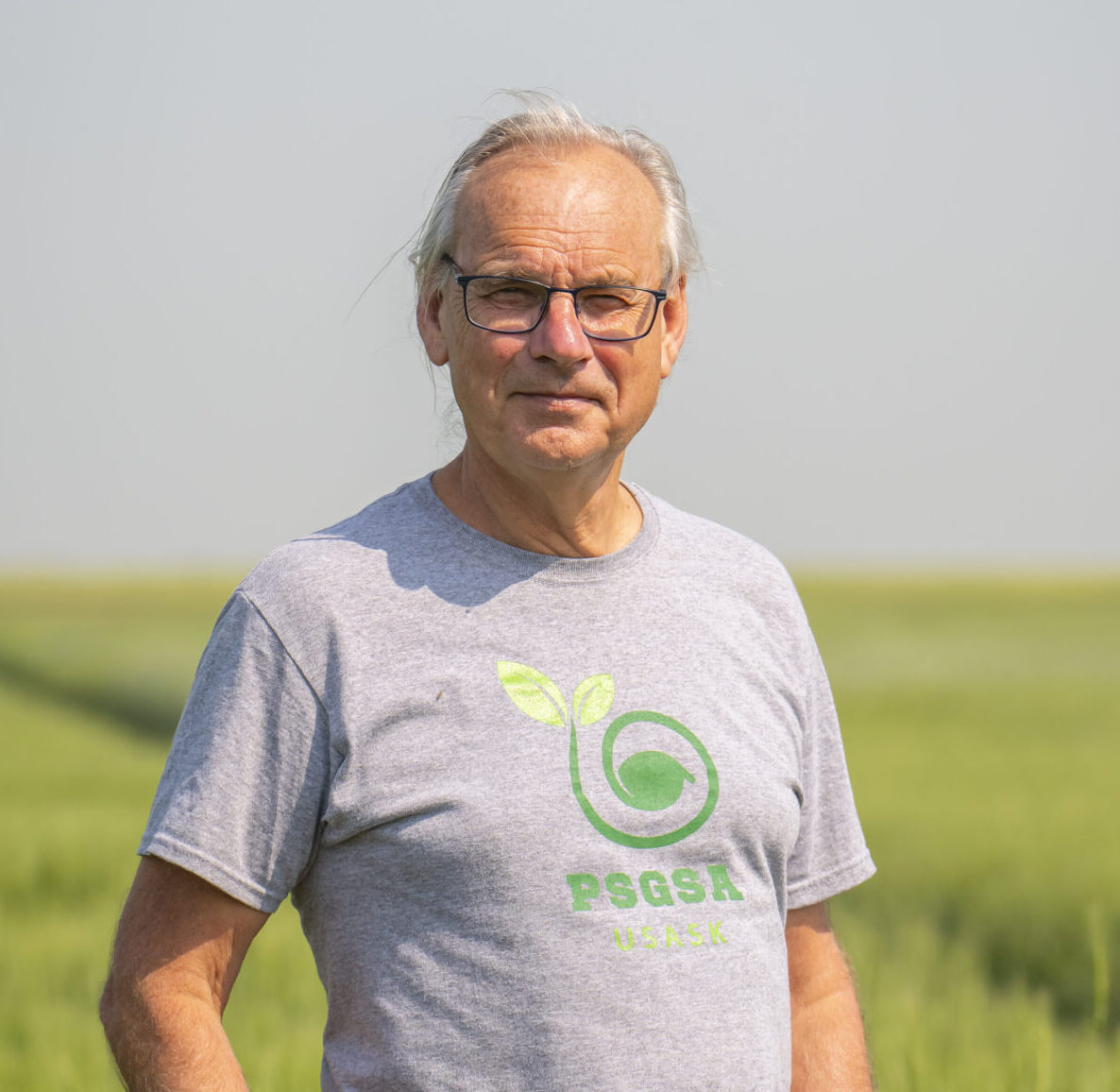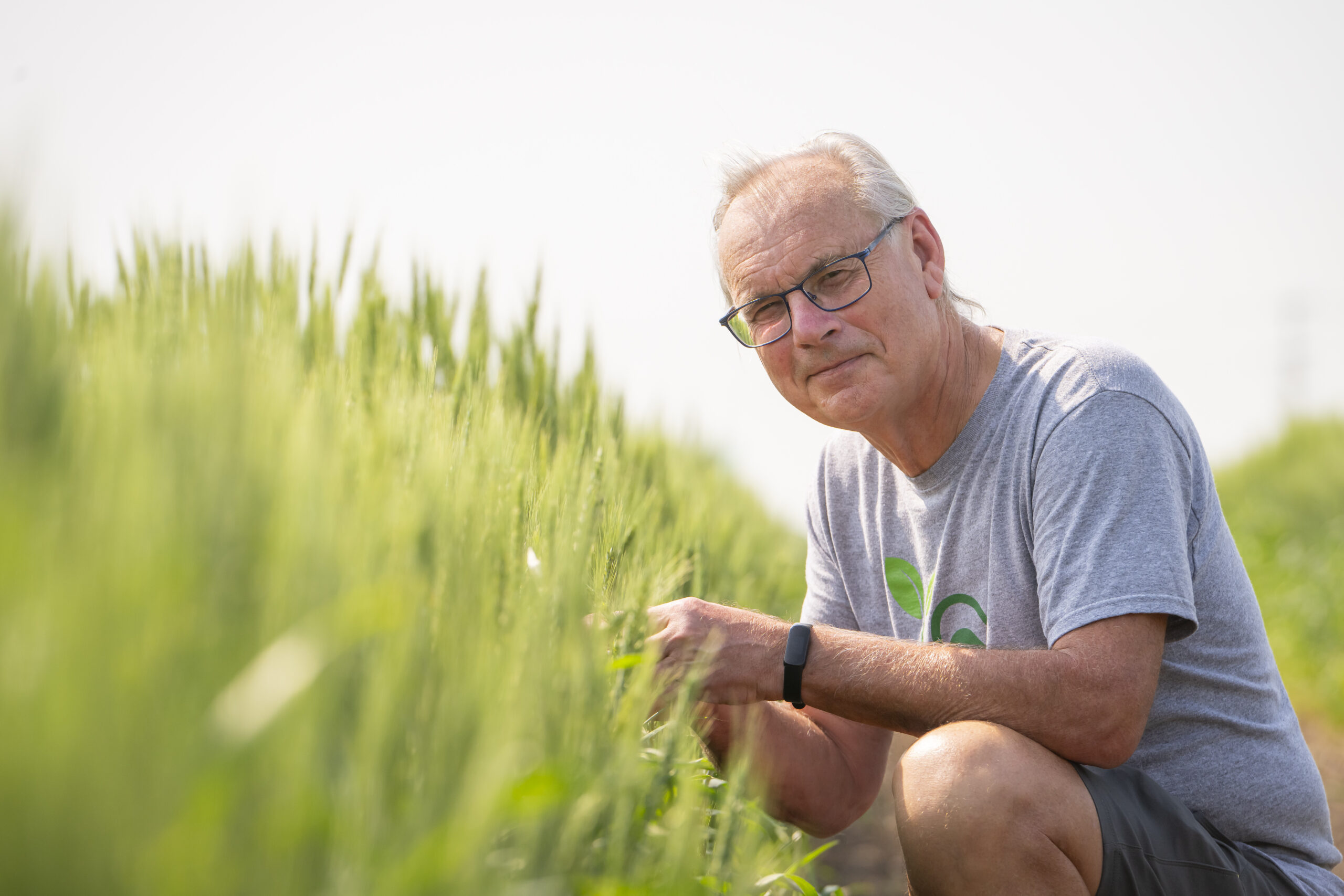Dr. Pierre Hucl – 2025 Clark Newman Clayton Award Recipient
 Dr. Pierre Hucl is an internationally recognized leader in plant breeding whose work has had a profound impact on food security and sustainable agriculture. As a wheat breeder at the University of Saskatchewan’s Crop Development Centre (CDC) and a professor in the College of Agriculture and Bioresources, Dr. Hucl has played a critical role in increasing wheat productivity in Western Canada. Since joining the CDC in 1990, he has led the development and release of over 90 new crop varieties, specializing in bread wheat, specialty wheats, triticale and canaryseed breeding and genetics.
Dr. Pierre Hucl is an internationally recognized leader in plant breeding whose work has had a profound impact on food security and sustainable agriculture. As a wheat breeder at the University of Saskatchewan’s Crop Development Centre (CDC) and a professor in the College of Agriculture and Bioresources, Dr. Hucl has played a critical role in increasing wheat productivity in Western Canada. Since joining the CDC in 1990, he has led the development and release of over 90 new crop varieties, specializing in bread wheat, specialty wheats, triticale and canaryseed breeding and genetics.
Dr. Hucl completed his B.Sc. and master’s at the University of Guelph before earning his Ph.D. in wheat breeding in Saskatchewan. Before joining the CDC, he worked for the Saskatchewan Wheat Pool, where his early experiences in plant genetics sparked his passion for wheat breeding. His research focuses on developing high-yielding, disease-resistant wheat varieties while maintaining grain quality, with ongoing projects funded by industry partners.
 An accomplished scientist, Dr. Hucl has published over 220 peer-reviewed articles and continues to refine wheat varieties to combat diseases like fusarium head blight. He is a strong advocate for farmer funding and support in sustaining public sector breeding programs. He has been an advocate for direct engagement with farmers to ensure breeding efforts address real-world challenges, from disease resistance to grading improvements and technological advancements.
An accomplished scientist, Dr. Hucl has published over 220 peer-reviewed articles and continues to refine wheat varieties to combat diseases like fusarium head blight. He is a strong advocate for farmer funding and support in sustaining public sector breeding programs. He has been an advocate for direct engagement with farmers to ensure breeding efforts address real-world challenges, from disease resistance to grading improvements and technological advancements.
Outside of work, Dr. Hucl enjoys walking soccer and experimenting with culinary creations, cooking a different pulse each week. His adventurous palate favors seafood and unique textures, such as squid and jellyfish—much to the dismay or amusement of his family.
Reflecting on his career, Dr. Hucl finds excitement in the process of taking an idea from inception to execution, solving challenges along the way. His legacy in plant breeding continues to shape the future of agriculture, ensuring crop varieties are resilient, productive, and well-suited to evolving market demands.







